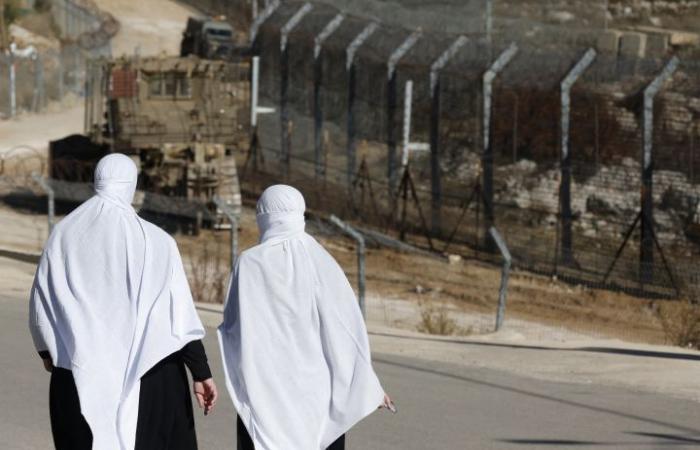The Israeli government on Sunday approved a plan by Prime Minister Benjamin Netanyahu to double the population in the part of the Syrian Golan occupied and annexed by Israel, according to a statement from Mr. Netanyahu’s office.
“The government unanimously approved Prime Minister Netanyahu’s project for the demographic development of the localities of the Golan and (the town of) Katzrin for a sum of 40 million shekels (10.6 million euros),” according to the press release.
“In light of the war and the new front in Syria and the desire to double the population of the Golan (…), this is a decision that strengthens the localities of the Golan and the State of Israel “, adds the press release.
At the same time, Mr. Netanyahu stressed that his country did not want to enter into conflict with Syria, a week after ordering his troops to seize the UN-controlled buffer zone separating the two countries on the Golan Heights.
“We have no interest in confronting Syria, we will define Israel’s policy towards Syria based on the reality on the ground,” he said in a video released by his office.
The day after the fall of Syrian President Bashar al-Assad, driven from power by rebels on December 8, Mr. Netanyahu declared that the part of the Syrian Golan annexed by Israel belonged to his country forever.
“Today, everyone understands the capital importance of our presence on the Golan, and not at the foot of the Golan,” which overlooks the hills of Galilee and Lake Galilee in northern Israel, he said. he said, adding: “The Golan will be part of the State of Israel for eternity.”
Around 30,000 Israeli citizens live in 34 localities in the Golan annexed by Israel, to which are added 23,000 Druze, a community whose religion comes from Islam, who mostly claim to be Syrian while having the status of residents in Israel.
Israel conquered part of the Golan, in southwest Syria, during the 1967 Arab-Israeli War, before annexing the territory in 1981. Only the United States, under the administration of Donald Trump, recognized this annexation in 2019.
With AFP






